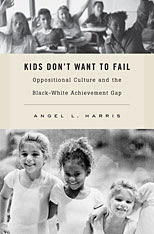Family; The Most Influential Agent of Socialization
Family is the most important agent of socialization. Family shapes our self-concept first and before we are even conscious of it. Human brain development happens most rapidly and greatly in the first few years after birth. This UNICEF website (2016) explains what experts have concluded about brain development. Dr. Suzana Herculano-Houzel explains the latest conclusions in this 5 min video. The point is that much growth and development happens in the earliest years of human life so our first caregivers have an enormous impact on who we become.
Here is the Google Form for this lesson.
Answer individually:
1. What are some ways that you are similar to your family? Is this latent or manifest? Why?
Evidence for Family Socialization
Family shapes your "self"
Read, Recall and Comprehend Quiz for this NY Magazine piece about Carolyn Dweck's book, Mindset
4. How is Dweck's research an example of family's influence on "self"?
Carol Dweck explains how parents and eventually schools both work to create a fixed mindset that actually prevents learning.
This Atlantic article the latest update to Dweck's research which shows that praise cannot be empty. It must be directed in specific nuanced ways to promote growth.
This NPR review of the book includes an excerpt and an interview.
This NY Magazine article explains how to apply Dweck's research to parenting and talking to kids.
Brain Pickings review of Dweck's Research provides a thorough explanation and a few quotes from the book.
Life Lessons from Chinese Culture from NPR shows how families influence kids to accept aspects of their culture. What are the hidden messages in the storybooks we read to our kids? That's a question that may occur to parents as their children dive into the new books that arrived over the holidays.
And it's a question that inspired a team of researchers to set up a study. Specifically, they wondered how the lessons varied from storybooks of one country to another.
Have you ever been in trouble for poor grades? You may want to read this research by Keith Robinson and Angel Harris.
A main finding from our analyses is that a non-punitive parenting philosophy enhances future academic performance. It may be that non-punitive strategies are particularly effective because they create an optimal setting under which children can devote more attention to schooling. This setting, void of punitive restrictions on activities, might foster the intrinsic motivation necessary for improved performance (Deci and Ryan 1985). It might also be that parents are re-organizing the way children spend their time, for example, suggesting (rather than explicitly demanding) they exchange some time spent on extracurricular activities for time on activities more essential for academic success. An exchange of this sort may involve spending fewer hours watching television or time alone in recreation, to more time studying with friends or attending after-school classes over the same number of hours. In this way, parents are not using punitive measures to adjust the way their child spends time, which might be the most effective way to motivate children academically.
"Despite achieving less in school, black students value schooling more than their white counterparts do. Black kids perform badly in high school not because they don’t want to succeed but because they enter without the necessary skills. Harris finds that the achievement gap starts to open up in preadolescence—when cumulating socioeconomic and health disadvantages inhibit skills development and when students start to feel the impact of lowered teacher expectations. Kids Don’t Want to Fail is must reading for teachers, academics, policy makers, and anyone interested in understanding the intersection of race and education."














